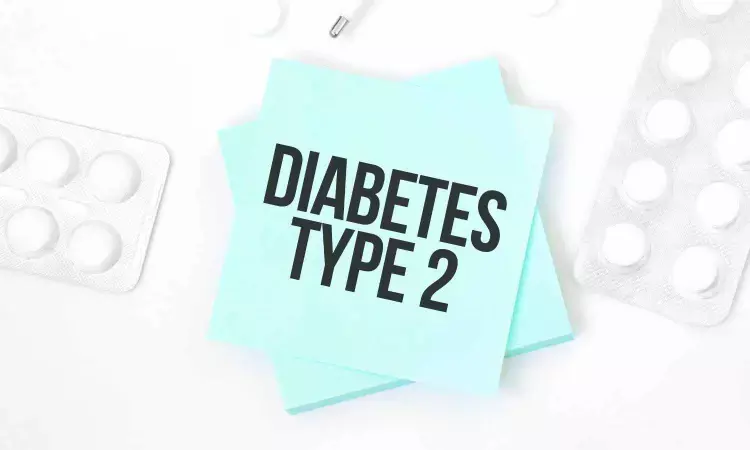- Home
- Medical news & Guidelines
- Anesthesiology
- Cardiology and CTVS
- Critical Care
- Dentistry
- Dermatology
- Diabetes and Endocrinology
- ENT
- Gastroenterology
- Medicine
- Nephrology
- Neurology
- Obstretics-Gynaecology
- Oncology
- Ophthalmology
- Orthopaedics
- Pediatrics-Neonatology
- Psychiatry
- Pulmonology
- Radiology
- Surgery
- Urology
- Laboratory Medicine
- Diet
- Nursing
- Paramedical
- Physiotherapy
- Health news
- Fact Check
- Bone Health Fact Check
- Brain Health Fact Check
- Cancer Related Fact Check
- Child Care Fact Check
- Dental and oral health fact check
- Diabetes and metabolic health fact check
- Diet and Nutrition Fact Check
- Eye and ENT Care Fact Check
- Fitness fact check
- Gut health fact check
- Heart health fact check
- Kidney health fact check
- Medical education fact check
- Men's health fact check
- Respiratory fact check
- Skin and hair care fact check
- Vaccine and Immunization fact check
- Women's health fact check
- AYUSH
- State News
- Andaman and Nicobar Islands
- Andhra Pradesh
- Arunachal Pradesh
- Assam
- Bihar
- Chandigarh
- Chattisgarh
- Dadra and Nagar Haveli
- Daman and Diu
- Delhi
- Goa
- Gujarat
- Haryana
- Himachal Pradesh
- Jammu & Kashmir
- Jharkhand
- Karnataka
- Kerala
- Ladakh
- Lakshadweep
- Madhya Pradesh
- Maharashtra
- Manipur
- Meghalaya
- Mizoram
- Nagaland
- Odisha
- Puducherry
- Punjab
- Rajasthan
- Sikkim
- Tamil Nadu
- Telangana
- Tripura
- Uttar Pradesh
- Uttrakhand
- West Bengal
- Medical Education
- Industry
Type 2 diabetes drug improves weight loss, blood sugar in certain Type 1 patients with obesity: Study

A clinical trial led by an Indiana University School of Medicine researcher found that weekly doses of semaglutide - a medication typically prescribed to Type 2 diabetes patients - improved blood sugar levels and weight loss for adult Type 1 diabetes patients who use automated insulin delivery systems and have a body mass index of 30 or higher.
The results, published Monday in NEJM Evidence, represent the first randomized clinical trial exploring semaglutide use in people with Type 1 diabetes, for whom the drug is not currently FDA approved.
"We found that semaglutide was effective in improving time spent in the target blood sugar range and reduction in body weight compared to placebo group," said Viral Shah, MD, lead study author and IU School of Medicine professor of medicine.
Researchers in the 26-week, double-blind study found that 36% of the 36 patients taking semaglutide:
• Achieved target blood glucose levels of over 70% time spent in range of 70 to 180 mg/dl.
• Reduced time spent with low blood sugar (lower than 70 mg/dl) to less than 4%.
• Lost at least 5% of their body weight.
None of the 36 patients taking a placebo achieved all three of these milestones.
Those patients taking semaglutide lost an average of 20 pounds without any observed severe complications.
There were two severe hypoglycemia events in each group and no diabetic ketoacidosis was reported.
Semaglutide is part of a class of drugs known as glucagon-like peptide-1, or GLP-1, receptor agonists. Although introduced as a Type 2 diabetes medication, it has recently gained prominence as a weight-loss drug.
"We hope that our trial will encourage the industry to conduct a regulatory approval trial so that this drug could be available as an adjunct to insulin therapy to optimize Type 1 diabetes management," Shah said.
This research was funded by Breakthrough T1D.
Giorgos Bakoyannis, PhD, adjunct associate professor of biostatistics and health data science, was a co-author on the study. Shah and Bakoyannis were joined by researchers from the University of Colorado Anschutz Medical Campus, Henry Ford Health, Iowa Diabetes Research, University of Washington and Oregon Health & Science University.
Dr Kamal Kant Kohli-MBBS, DTCD- a chest specialist with more than 30 years of practice and a flair for writing clinical articles, Dr Kamal Kant Kohli joined Medical Dialogues as a Chief Editor of Medical News. Besides writing articles, as an editor, he proofreads and verifies all the medical content published on Medical Dialogues including those coming from journals, studies,medical conferences,guidelines etc. Email: drkohli@medicaldialogues.in. Contact no. 011-43720751


